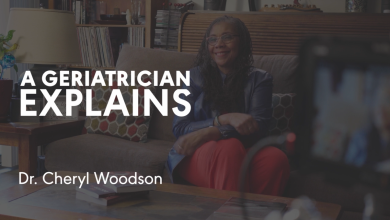5 Ways Local Elections Can Drive Change in Black Communities


Black voters will likely play a critical role in the upcoming 2024 presidential election between GOP nominee Donald Trump and Democrat Kamala Harris. It’s no wonder both candidates have targeted people of color in their campaign messaging.
But aside from national politics, local elections are arguably just as important, if not more so, in Black communities across the country. They have a more immediate and tangible impact on communities, driving significant change at the local level.
Grassroots politics have long been a powerful tool, engaging ordinary people at the local level to create political change. This can involve rallies dedicated to important matters affecting Black communities and mobilizing Black voters to take action in local elections.
Have you ever seen people organize an event or set up a tent at local events to register people to vote? That’s an example of grassroots efforts to ensure Black voters can participate in elections. You don’t need to be a political expert to organize events and advocate for policies—social media can be a powerful vehicle to influence elections.
It’s also crucial to research local officials to understand their stances on various issues faced in communities of color. Some critical issues facing Black Americans nationwide include voter suppression, health disparities, economic inequality and systemic racism.
According to the Brennan Center for Justice and Harvard Health, these challenges significantly impact the well-being and opportunities available to people of color.
Overall, grassroots politics and local elections are essential tools for driving change in Black communities. By engaging in the political process, Black residents can ensure their voices are heard and influence change.
Here are five ways local elections affect Black communities:
Empowering local leadership
Local elections provide an opportunity for Black communities to elect leaders who they feel understand their unique challenges and are committed to addressing them.
According to the Nonprofit Quarterly, grassroots action is crucial for systemic change, as it allows communities to develop strategies grounded in their local context.
“For change to occur, we should look to civic action happening on the ground. With regards to housing policy, for example, much of existing civil rights legislation was passed in response to organized local pressure,” Nonprofit Quarterly wrote. “In other words, change came to Washington, D.C., not from it.”
Addressing voter suppression
Voter suppression disproportionately affects Black communities, making it essential to elect officials who will fight for fair voting practices.
The Brennan Center for Justice underscored how strict voter ID laws and other voting restrictions have a significant negative impact on Black voters in particular. By participating in local elections, communities can support candidates who prioritize voting rights and work to eliminate these barriers.
Over the last two decades, states have imposed barriers such as strict voter ID laws, cutting voting times, restricting registration, and purging voter rolls, according to the center. These efforts have disproportionately affected racial minorities, poor people, and young and old voters
Improving access to public services
Elected officials can lead to better public services, such as education, health care, and housing, which are vital for the well-being of Black communities.
Local leaders who prioritize these issues can allocate resources and implement policies that directly benefit their constituents. As noted by the American Bar Association, addressing systemic discrimination in public services is essential for achieving equity.
Tackling safety issues in Black communities
Electing local officials committed to community safety and justice reform can help reduce crime and improve relationships between law enforcement and Black communities. As we know, there is often mistrust from Black residents towards the police, as they feel law enforcement has abused its power and used aggressive tactics in Black neighborhoods.
According to Politico, gentrification and displacement have eroded Black political power in many cities, making it crucial to support candidates who will advocate for community-driven safety initiatives.
Fostering economic development
Local elections can drive economic development by supporting policies that promote job creation, small business growth, and affordable housing.
The Brennan Center for Justice emphasized the importance of addressing economic disparities to create more equitable communities. By electing officials who prioritize economic development, Black neighborhoods can experience increased opportunities and improved quality of life.




